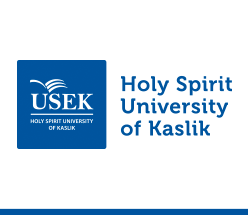Ethics Policies
The journal is committed to upholding the highest ethical standards in academic publishing, fully adhering to the guidelines of the Committee on Publication Ethics (COPE).
Editors play a crucial role in ensuring the integrity of the publication process. They are responsible for selecting manuscripts for review and publication based on their academic merit, ensuring a fair and unbiased review process. To maintain objectivity, the identities of both authors and reviewers remain confidential. Additionally, editors must treat all submissions as strictly confidential, sharing information only with relevant individuals such as reviewers, editorial advisers, and the publisher. Any materials from submitted manuscripts, whether published or unpublished, cannot be used for personal research without explicit written consent from the authors. In cases of ethical concerns, editors are responsible for conducting fair and thorough investigations to uphold the integrity of the journal.
Reviewers are expected to evaluate manuscripts with professionalism and confidentiality. All information within the submitted papers should be treated as privileged and not shared with others. Reviews must be conducted objectively, focusing on the content rather than personal criticism of the author. To support the editorial decision-making process, reviewers should provide clear and well-reasoned feedback. They are also expected to complete their evaluations within the given timeframe. If a reviewer has any conflict of interest—whether due to professional, financial, or personal connections with the authors, institutions, or companies associated with the manuscript—they must decline the review to ensure fairness.
Authors bear the responsibility of maintaining the integrity of their research and its presentation. All submitted manuscripts must be original, and any form of plagiarism, including self-plagiarism, is strictly prohibited. Manuscripts must not be submitted to multiple journals simultaneously, nor should identical or significantly similar versions have been previously published. Proper acknowledgment of all sources is required, ensuring transparency and academic honesty. Authors must disclose any financial or other conflicts of interest that may have influenced their research outcomes.
To support academic rigor, authors may be asked to provide raw data for editorial review and, if possible, make it publicly accessible. Research findings should be presented honestly, without fabrication, falsification, or manipulation of data. If a manuscript includes third-party materials, authors must obtain written permission for their use. Furthermore, all contributing authors should be properly credited, with the final author list and order established before submission, as changes will not be allowed after acceptance.
By submitting a manuscript to this journal, authors affirm their commitment to these ethical standards, ensuring credibility, fairness, and academic excellence in their work.



